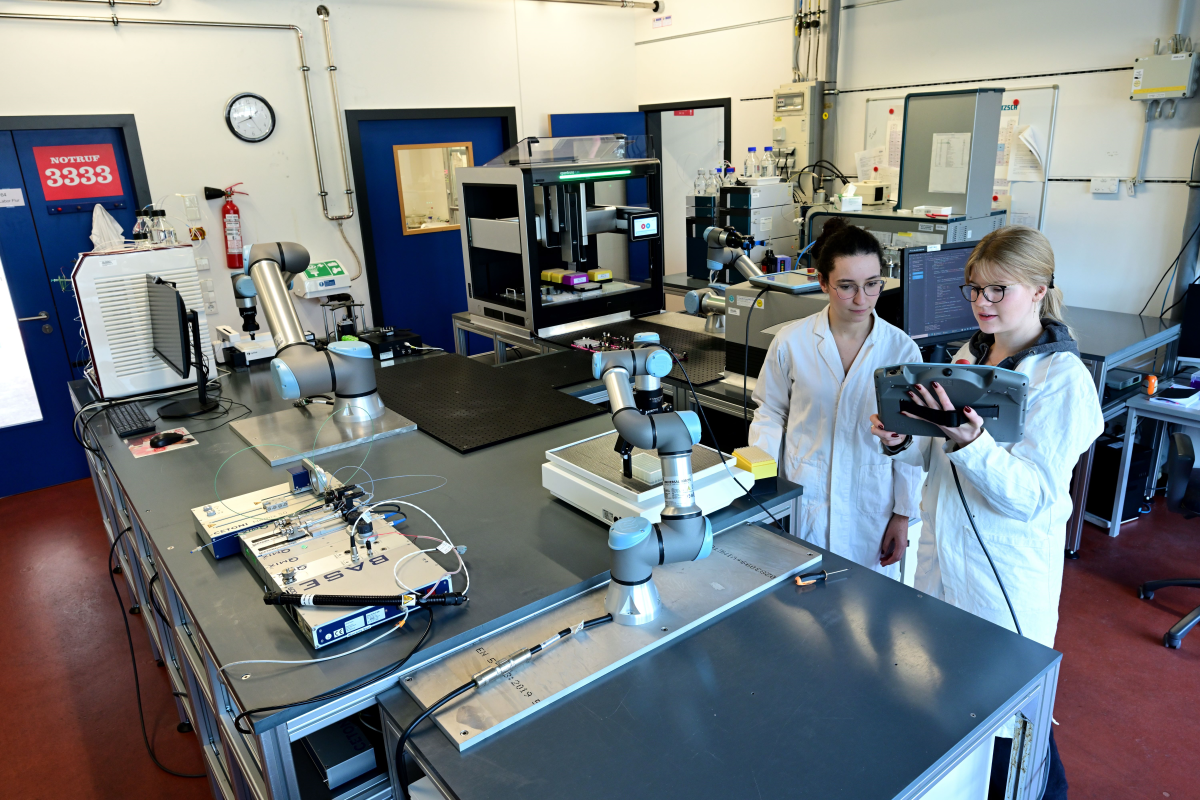Department of Bioengineering and Biosystems

The department of Bioengineering and Biosystems focuses on advancing biotechnology and bioprocess engineering through automation, computational modeling, and advanced analytics. In recent years, we have prioritized bioanalytics and bioprocess optimization using in-house developed self-driving laboratories (SDLs). These autonomous platforms integrate robotics, AI, and state-of-the-art analytics to refine sample preparation and bioanalytical workflows efficiently and reproducibly. The different groups of the department specialize in reactor development, process modelling, biosensor and biomedical technologies, biochemistry, microbiology, and 3D cell culture systems. We develop innovative synthesis, separation, and analytical processes, including enzyme reactors, electro-biotechnological systems, molecular-imprinted polymers, O2-sensitive microcavity arrays and antimicrobial materials. Key application areas include conversion of CO₂ into valuable bioproducts, molecular (bio)analytics, drug formulation and theranostics, biofilm research, and invitro oxygen measurements. Cutting-edge technologies such as additive manufacturing, automation, fluidics, and advanced mass spectrometry drive our research.
Find out more at the Bioengineering and Biosystems website.
Scientific Leadership
Prof. Dr.-Ing. Matthias Franzreb
Head of Department
Dr.-Ing. André Tschöpe
Head of Process and Reactor Technology Group
Dr. Katharina Bleher
Head of Bioinorganic and Analytical Chemistry Group
Prof. Dr. Eric Gottwald
Head of 3D Cell Culture Group
Dr. Gözde Kabay
Head of Biomedical Technologies Group
Senior Scientists
Prof. Dr. Thomas Schwartz
Dr. Gerald Brenner-Weiss
Dr. Katharina Bleher
Dr. Bahar Dadfar
Jonas Wohlgemuth (M. Eng.)
Working Groups
Bioprocess- and Reactor Development
Simulation-driven development of synthesis, separation, and analytical bioprocesses, emphasizing enzyme reactors, electro-biotechnology, and innovative bioseparations - from molecular dynamics and multiphysics FEM to digital twins.
Bioinorganic and Analytical Chemistry
From catalyst development to autonomous, end-to-end analysis: bioinspired transition-metal catalysis for small molcule activation, mass spectrometry across scales, and self-ädriving labs for autonomous optimisation.
3D Cell Culture System
3D-Cell culture systems applying oxygen-sensitive polymers for optical oxygen measurements in organoid cultures and the development of 3D culture models.
Biomedical Technologies
Development of diagnostic systems, including synthetic receptors, molecularly imprinted polymer (MIP)-based biosensors, nanopharmaceuticals, and functional biomaterials. Optimization of bioprocesses using robotic-assisted automation and machine-learning algorithms. Development of AI-driven tools for medical data harmonization, disease-stage detection, and decentralized health-data workflows.
